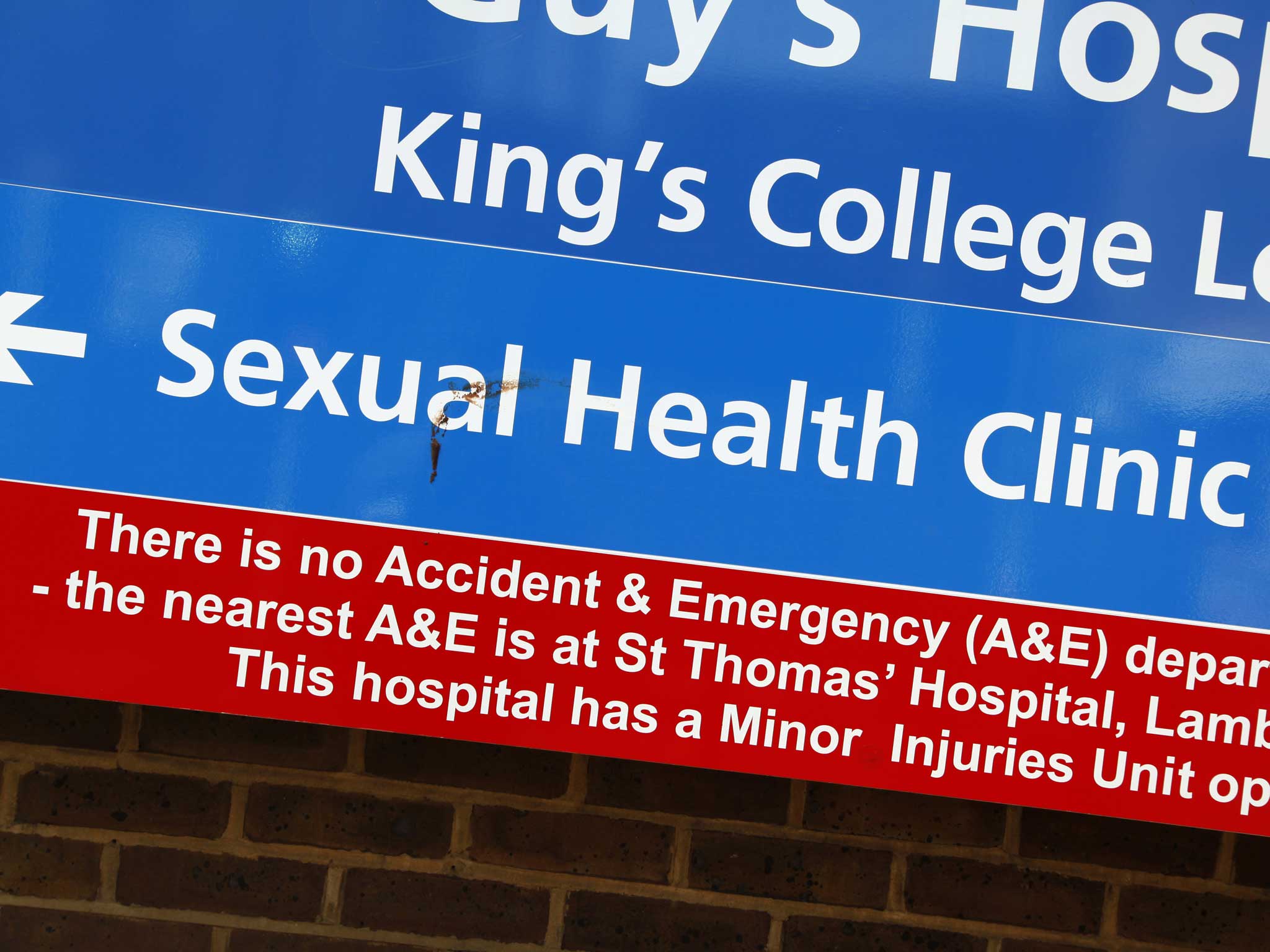STI infection rates among gay men reach 'crisis' levels
Health chiefs from around the UK will meet in London this week to devise new strategies to tackle the problem

Your support helps us to tell the story
From reproductive rights to climate change to Big Tech, The Independent is on the ground when the story is developing. Whether it's investigating the financials of Elon Musk's pro-Trump PAC or producing our latest documentary, 'The A Word', which shines a light on the American women fighting for reproductive rights, we know how important it is to parse out the facts from the messaging.
At such a critical moment in US history, we need reporters on the ground. Your donation allows us to keep sending journalists to speak to both sides of the story.
The Independent is trusted by Americans across the entire political spectrum. And unlike many other quality news outlets, we choose not to lock Americans out of our reporting and analysis with paywalls. We believe quality journalism should be available to everyone, paid for by those who can afford it.
Your support makes all the difference.A growing epidemic of sexually transmitted infections (STIs) linked to a rise in unprotected sex and club drug use represents “a crisis for gay men”, a leading expert has said.
Rates of gonorrhoea, chlamydia and syphilis in gay men have soared in recent years, official figures show, while new HIV infections have also reached record highs.
Health chiefs from around the UK will meet in London this week to share evidence and devise new strategies to tackle the problem, which has seen record highs in infection rates for several STIs.
Experts say that, paradoxically, the rise of successful drug treatments for HIV has contributed to increased infection rates for other STIs. More men are having unprotected sex in the assumption that they no longer need to wear a condom to protect themselves from the virus, once considered a death sentence before the advent of effective anti-retroviral drugs. Other men are lowering their risk by ‘sero-sorting’, or ensuring partners have the same HIV status as them, but then having unprotected sex, risking the transmission of other infections.
The problem has taken on a worrying new dimension in the past five years, with a minority of gay men, particularly in London and other major cities, taking up high risk sexual behaviour associated with the injection club drugs such as crystal meth.
Infection rates for HIV itself are also on the rise, with 3,250 new diagnoses in men who have sex with men the UK in 2012, an all-time high.
David Stuart, substance use lead at the 56 Dean Street sexual health clinic, said the situation had reached crisis levels.
“There’s been a flood of new drugs onto the market,” he said. “That has mixed with a lot of confusion about the changing HIV healthcare situation. Once upon a time the message was: “wear a condom and you’re safe”. Now if someone is taking their medicine it’s very hard to transmit the virus even if you don’t use a condom. Thirdly, there’s new technology – things like [gay networking site] Grindr and websites for hooking up online. There’s no training booklet for how to manage your sex life, your romantic life, using these apps.”
There were 36,000 STI diagnoses in men who have sex with men in England alone in 2012, including 8,500 new cases of chlamydia, 10,800 for gonorrhoea and 2,100 cases of syphilis. Although improved testing and screening explains some of the rise, health experts agree that high risk behaviours have become much more common.
Gwenda Hughes, head of STI surveillance, who will be meeting other experts on Friday at a meeting called by the British Association for Sexual Health and HIV (BASHH), said that a new holistic approach was needed to address the crisis.
“We need a much broader strategy to look at the sexual health of men who have sex with men, looking at contextual factors behind their poor sexual health,” she said. “We want to understand why people are having risky sex. The idea is to look at broader issues around mental health, wellbeing, discrimination and broader health issues in this population.”
Join our commenting forum
Join thought-provoking conversations, follow other Independent readers and see their replies
Comments